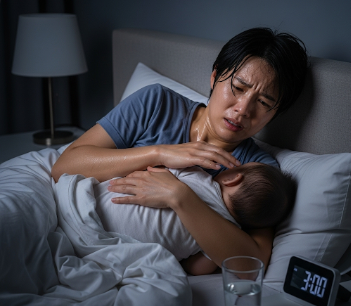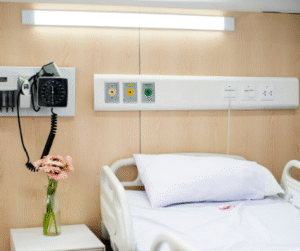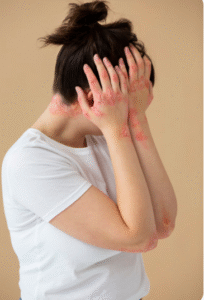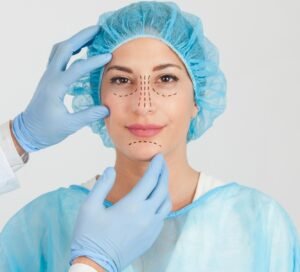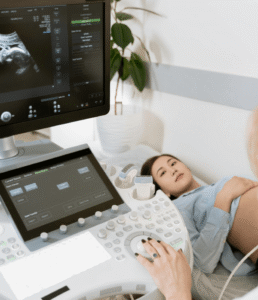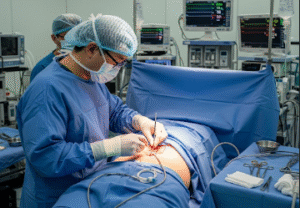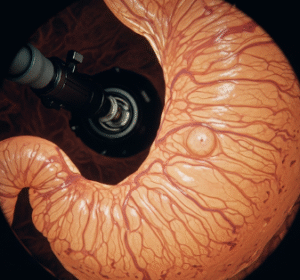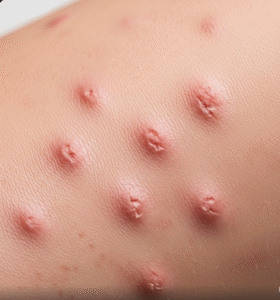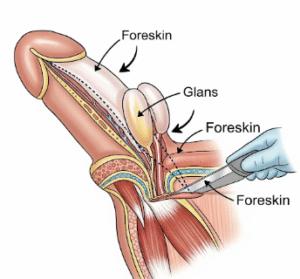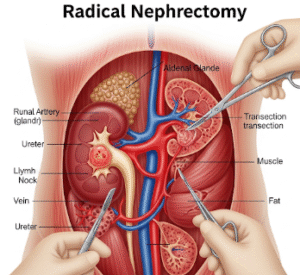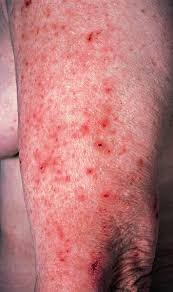Overview
Postpartum night sweats are episodes of excessive sweating that occur during the night after childbirth, often severe enough to soak clothes and bedding. They are a common symptom in the weeks following delivery, particularly during the first few days to weeks.
In most cases, postpartum night sweats are linked to hormonal changes, fluid shifts, and the body’s natural recovery process after pregnancy. While usually harmless, they can sometimes be uncomfortable, disturbing sleep, and in rare cases, may indicate an underlying medical condition.
In Korea, postpartum recovery is taken seriously, with specialized postnatal care clinics (산후조리원) providing mothers with supportive therapies, nutrition guidance, and medical monitoring to manage symptoms like night sweats effectively.
➤ Postpartum night sweats are common, temporary, and often related to hormonal changes.
➤ They usually resolve on their own within a few weeks.
➤ Persistent or severe cases may need medical evaluation.
Key Facts
➤ Affects many women in the first few weeks after childbirth.
➤ Primarily caused by falling estrogen levels and fluid balance adjustments.
➤ Often accompanied by postpartum fatigue, mood changes, and sleep disturbances.
➤ Night sweats usually resolve within 2–6 weeks, but may last longer for some women.
➤ In Korea, postpartum care centers provide effective management strategies.
What Are Postpartum Night Sweats?
Postpartum night sweats are a form of secondary hyperhidrosis (excessive sweating due to a medical condition) that occurs in the postnatal period.
During pregnancy, the body retains extra fluid to support the baby. After childbirth, the body must eliminate excess fluids and adjust hormone levels. This rapid adjustment—especially the sudden drop in estrogen and progesterone—can trigger sweating, particularly at night.
➤ Normal vs. Postpartum Night Sweats
➤ Normal sweating regulates body temperature.
➤ Postpartum sweating results from hormonal and fluid regulation after pregnancy.
What Symptoms Are Related To
Postpartum night sweats may occur alone or with other related symptoms:
➤ Common Associated Symptoms
➤ Fatigue and sleep disturbance.
➤ Hot flashes during the day.
➤ Mood swings or irritability.
➤ Increased urination (postpartum diuresis).
➤ Concerning Symptoms (Seek Medical Help if Present)
➤ Fever, chills, or flu-like feelings.
➤ Rapid heartbeat or dizziness.
➤ Foul-smelling vaginal discharge.
➤ Persistent or extreme sweating lasting several months.
What Causes / Possible Causes
The most common causes of postpartum night sweats include:
➤ Hormonal Changes
➤ After delivery, estrogen and progesterone levels drop dramatically.
➤ This hormonal shift affects the body’s temperature regulation, leading to sweating.
➤ Excess Fluid Elimination
➤ During pregnancy, blood volume and fluid retention increase.
➤ After childbirth, the body releases this extra fluid through urination and sweating.
➤ Breastfeeding-Related Hormones
➤ Prolactin, the hormone responsible for milk production, can also affect temperature control.
➤ Stress and Anxiety
➤ New mothers often experience postpartum stress, which may worsen sweating.
➤ Other Medical Conditions (less common but important to rule out):
➤ Postpartum thyroiditis (inflammation of the thyroid gland).
➤ Infections (endometritis, urinary tract infection, or mastitis).
➤ Postpartum depression or anxiety disorders.
When Should I See My Doctor
Most cases of postpartum night sweats are harmless. However, you should consult a doctor if you experience:
➤ Night sweats accompanied by fever, chills, or flu-like symptoms.
➤ Profuse sweating lasting longer than 6–8 weeks postpartum.
➤ Unexplained weight loss, severe fatigue, or palpitations.
➤ Signs of thyroid problems (anxiety, tremors, heat intolerance, or hair loss).
➤ Signs of postpartum infection, such as foul vaginal discharge or localized breast pain with fever.
Care and Treatment
Postpartum night sweats typically resolve on their own, but self-care measures and medical support can make them easier to manage.
➤ Lifestyle & Home Remedies
➤ Wear light, breathable clothing to bed.
➤ Use cotton sheets and change bedding frequently.
➤ Keep the bedroom cool and well-ventilated.
➤ Avoid caffeine, spicy foods, and alcohol, which can worsen sweating.
➤ Stay well-hydrated to replace lost fluids.
➤ Medical Management
➤ If caused by thyroid disorders, medication may be prescribed.
➤ If linked to infections, antibiotics or other treatments are required.
➤ Hormone replacement therapy (rarely used, and only under strict medical guidance).
➤ Psychological Support
➤ Counseling or therapy for stress, anxiety, or postpartum depression.
➤ Support groups for new mothers.
Treatment Options in Korea
Korea provides some of the world’s most advanced postpartum care systems, with specialized centers offering medical and supportive management for mothers.
➤ Postpartum Care Centers (산후조리원)
➤ Unique to Korea, these centers provide professional nursing, nutrition, and recovery support.
➤ Night sweats and other postpartum symptoms are monitored closely.
➤ Endocrinology & Gynecology Clinics
➤ Specialized testing for hormonal imbalances, thyroid function, and postpartum diabetes.
➤ Personalized treatment for underlying medical conditions.
➤ Infection Management
➤ Korea’s hospitals provide rapid diagnostic testing to rule out postpartum infections that may cause night sweats.
➤ Integrative Medicine & Herbal Therapies
➤ Some mothers in Korea also seek traditional Korean medicine , which may include herbal remedies and acupuncture for hormonal balance.
➤ Mental Health Support
➤ Growing awareness of postpartum depression means hospitals now integrate psychological counseling as part of recovery.

